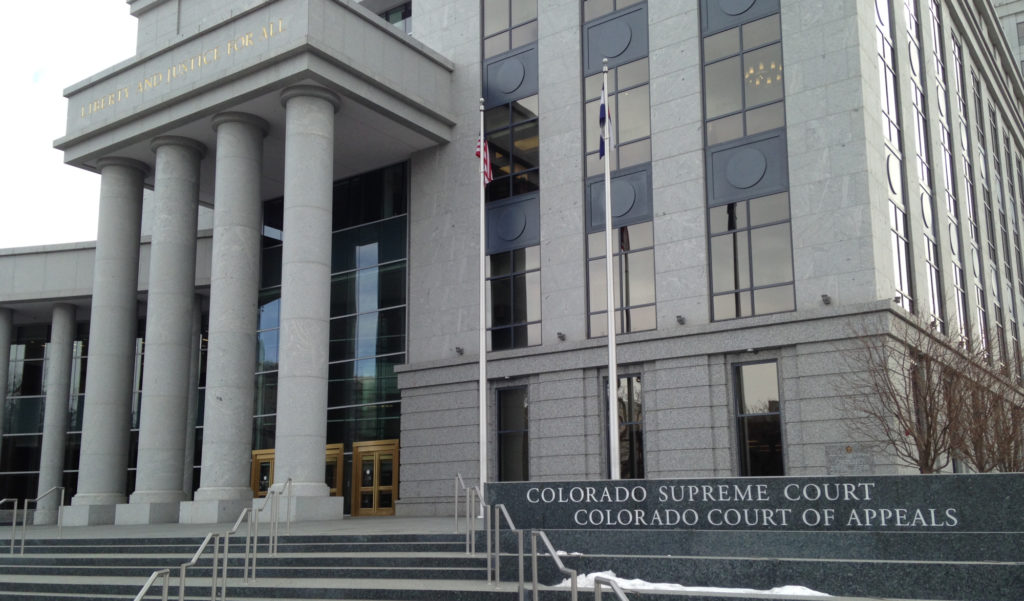By Jeffrey A. Roberts
CFOIC Executive Director
The Colorado Court of Appeals last week reversed a judge’s findings that emails protected from disclosure by the attorney-client and deliberative process privileges are nonetheless available to a “person in interest” under the Colorado Open Records Act.
A three-judge appellate panel wrote that CORA’s plain language does not compel the release of privileged records to someone who is mentioned in the records, contrary to rulings by Larimer County District Court Judge Gregory Lammons concerning emails exchanged among Loveland city officials that discussed a former city paralegal.
The district court’s interpretation “leads to an absurd result,” the Court of Appeals concluded.

The published opinion pertains to two CORA exemptions. One requires records custodians to deny requests for government records containing “privileged information,” which the Colorado Supreme Court has said includes attorney-client privileged information. The other concerns the deliberative process privilege, which the legislature codified in the open records law following a 1998 Colorado Supreme Court ruling.
If deliberative process is asserted to withhold records, the government is claiming that the “material is so candid or personal that public disclosure is likely to stifle honest and frank discussion within the government.” When invoking this exemption, the records custodian must produce an affidavit “specifically describing each document withheld, explaining why each such document is privileged, and why disclosure would cause substantial injury to the public interest.”
Lammons ruled earlier this year that certain emails about former Loveland paralegal Michele DiPietro, who is in a dispute with the city over severance pay, were subject to one or the other privilege, barring their public disclosure. However, the judge determined DiPietro was entitled to inspect the records because both privileges are in a CORA section specifying categories of records that must be withheld except to “the person in interest.”
Judge David Yun, in the Court of Appeals’ opinion, wrote that Lammons “erred” in his rulings by not considering the effect of the phrase “in accordance with this subsection” in the statute. “By including this phrase in section 24-72-204(3)(a), the General Assembly made clear that any disclosure to a person of interest must be done in conformity to or in harmony with the rest of subsection (3).”
The subsection, Yun noted, details requirements for disclosing certain records, such as sexual harassment complaints and investigations, to a person in interest. “Other parts of (the subsection), by contrast, do not specifically allow disclosure to a person in interest.”
Nothing in CORA “permits the disclosure of records protected by the deliberative process privilege when disclosure would harm the public interest,” the opinion says. Likewise, the section on attorney-client privilege “does not carve out an exception” for a person in interest, it adds. CORA also requires the withholding of records if “inspection would be contrary to any state statute.” Noting this, the Court of Appeals pointed to the codification of the attorney-client privilege in C.R.S. § 13-90-107(b).
The Colorado Municipal League in a friend-of-the-court brief had asked that Lammons’ rulings be overturned or else “Colorado governments and the public interests they serve would suffer severe consequences.”
The Court of Appeals concluded that requiring disclosure of documents protected by the deliberative process privilege to a person in interest “would directly contradict the General Assembly’s express intent in creating this exception to CORA disclosures.” And disclosing privileged attorney-client communications to a person in interest “would create an extraordinary and absurd exception contrary to the legislature’s express intent to protect attorney-client communications.” It would “deprive (government) officials of effective and complete legal representation,” the judges said.
“We decline to interpret CORA in a way that would effectively destroy the attorney-client privilege for governmental entities.”
Follow the Colorado Freedom of Information Coalition on Twitter @CoFOIC. Like CFOIC’s Facebook page. Do you appreciate the information and resources provided by CFOIC? Please consider making a tax-deductible donation.




